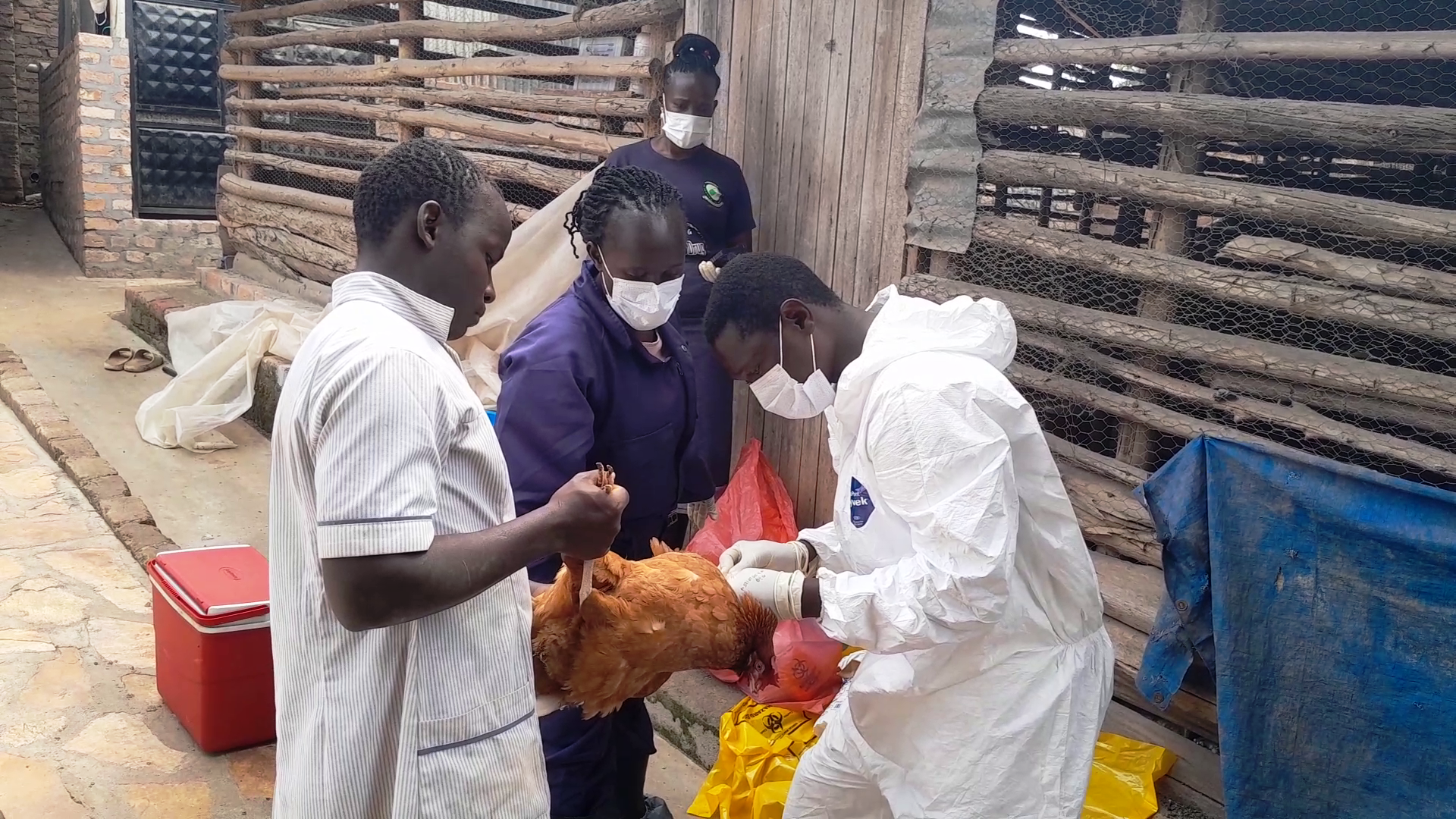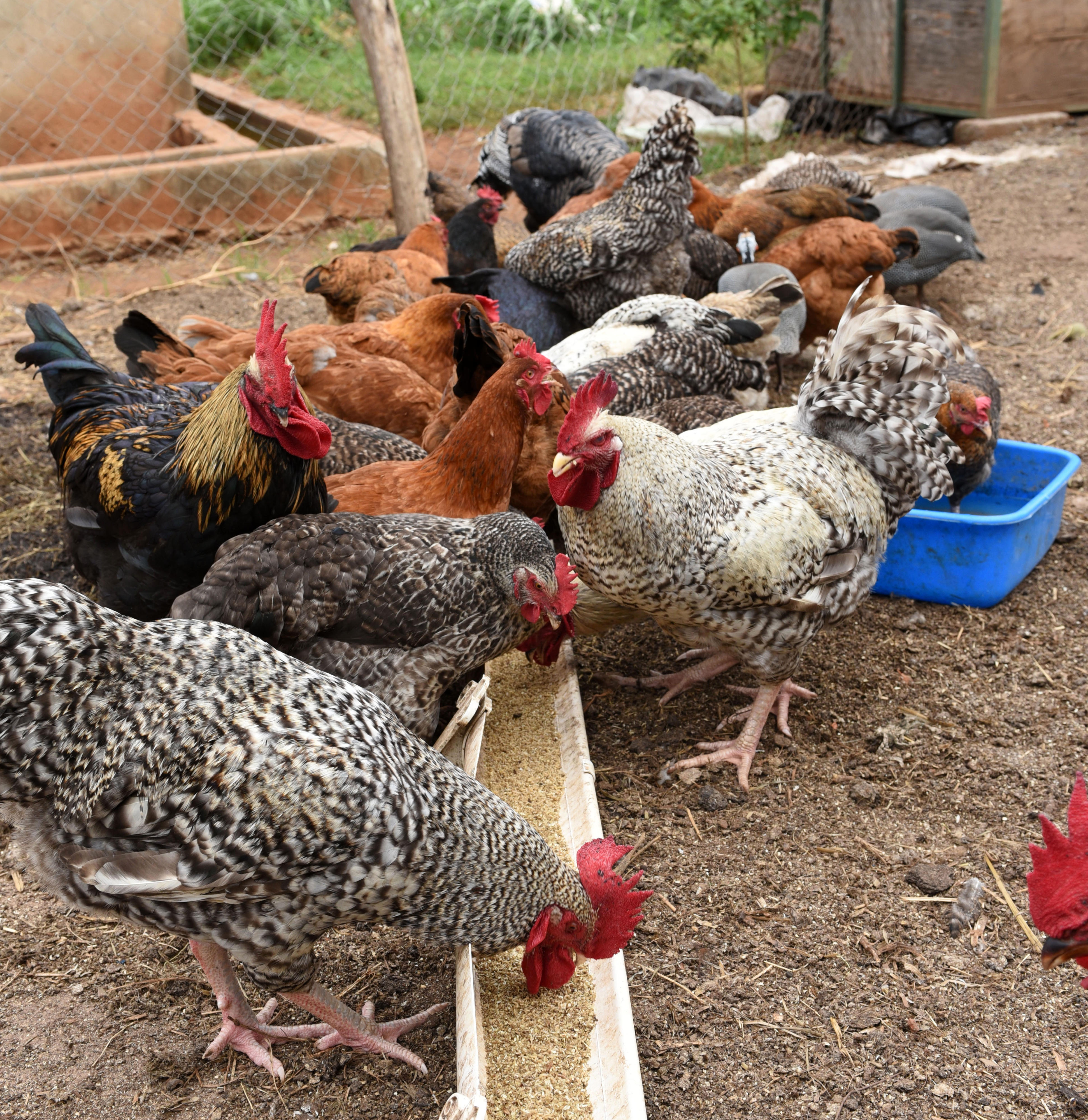Prime
Strange disease: Masaka City restricts slaughter of chicken

Veterinary doctors from the Ministry of Agriculture and Animal Husbandry take samples from an infected bird in Masaka City on August 2, 2024. PHOTO/ISSA ALIGA
What you need to know:
- Officials say chicken will only be slaughtered from two markets.
- Justification. This decision [to restrict slaughtering of chickens] was reached during the city task force meeting that came up with several measures to ensure that the public is protected and also contain the spread of the yet-to-be-confirmed disease,” Musa Maberi, Masaka City health inspector
Veterinary authorities in Masaka City have restricted the slaughtering of chicken to gazetted points in the city to control the spread of a yet-to-be-confirmed strange disease that has wiped out thousands of domestic birds in the area.
Mr Musa Maberi, the Masaka City health inspector, said the slaughtering of chicken for commercial purposes is currently allowed in only two areas - Masaka Central Market and Nyendo Market - to enable veterinary doctors to closely monitor the processes.
He said the chicken slaughtered from the two markets will be stamped to confirm it conforms to the required standards and is fit for human consumption.
“This decision [to restrict slaughtering of chickens] was reached during the city task force meeting that came up with several measures to ensure that the public is protected and also contain the spread of the yet-to-be-confirmed disease,” he said during an interview on Saturday.
The task force chaired by Masaka Resident City Commissioner, Mr Hudu Hussein, also resolved that community engagements be conducted in several parts of the city to sensitise poultry farmers and the public on how to contain the spread of the disease.
“We have resolved to bury all the dead chicken now that samples have been collected as another measure of trying to control the spread of the disease. We are expecting to get results next [this] week, and we shall reconvene to discuss the way forward,” he added.
He, however, advised poultry farmers to take precautions to contain the spread of the disease to other areas, including isolating the infected birds, improving hygiene and restricting the movement of people and birds in and out of the affected farms.
Early last week, the city dwellers were shocked to find large numbers of dead chickens dumped at different locations in the city after dying of a strange disease. Some of the affected villages include Kako, Mitemula, Kaduggala, Senya, Ndegeya, Kayijja, Mwalo and Kasooka.
Local authorities put the number of chickens that have died in the last couple of weeks at 10,000.
Last week, surveillance teams from the Infectious Disease Institute (IDI), World Health Organisation and Ministry of Agriculture arrived in Masaka and visited some of the affected farms. They collected fluids and droppings from the sick chicken from where mass deaths of poultry have been reported so far and took the samples to the Uganda Virus Research Institute, Entebbe.
All the dead birds which farmers had dumped in different locations in the city have since been buried or set on fire to prevent people from taking them away to eat.
Incidentally, Greater Masaka areas, particularly the districts of Kyotera and Rakai, have just recovered from a deadly cattle disease, Anthrax, which claimed 17 lives and left 30 residents bedridden.
In January 2017, Bukakkata Sub-county on the shores of Lake Victoria in Masaka District also suffered an outbreak of Avian flu, which left thousands of birds dead.
The virus was mostly reported in migratory birds and didn’t cross to domestic birds and humans.
Luckily, laboratory tests later showed that the type of Avian flu that struck the country was of lower pathogenicity than the Avian Influenza or Avian flu (H5N1) reported earlier. Pathogenicity, according to medical experts, refers to the ability of the virus to produce disease.




